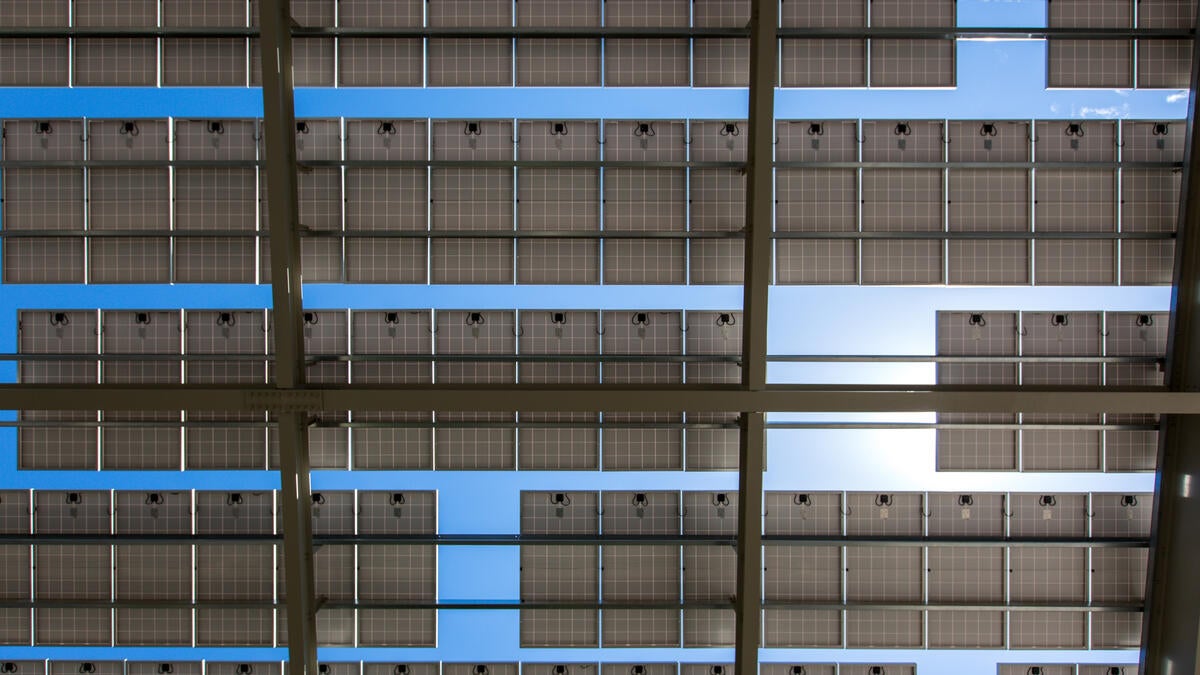Arizona State University works vigilantly to incorporate sustainability practices in all of its daily environments. In 2006, the university made real headway by establishing the nation’s first school of sustainability. Since then, efforts to become a more environmentally conscious campus have multiplied, and the university’s efforts have earned notice.
U.S. News and World Report recently highlighted ASU as one of 10 environmentally friendly college campuses, citing the university’s Carbon Project, which helps reduce carbon emissions on campuses, and ASU’s Fair Trade designation, which encourages vendors to use products that are produced with fair labor practices and environmental protections.
The ranking came from Sierra Magazine’s 2019 Cool Schools scores. Thompson Rivers University in British Columbia, Canada, ranked No. 1. The top 10 includes the University of California, Irvine, the University of Connecticut and Colorado State University. ASU ranked 10th in the nation, ahead of the University of California, Berkeley, the University of Illinois at Urbana-Champaign, Oregon State University and Cornell.
"ASU continues to be recognized for its comprehensive solution-focused approach to sustainability. With efforts across research and education, climate action, water optimization, zero waste, personal action, collaborative action, resilience, community success, and food; we appreciate the recognition of ASU’s success," said Corey Hawkey, assistant director of University Sustainability Practices.
In 2006, ASU increased its efforts to certify its buildings under the U.S. Green Building Council’s Leadership in Energy and Environmental Design rating system. The Fulton Center on the Tempe campus became ASU’s first LEED-certified building by reducing its urban heat island effect through roof and landscape design, using recycled building materials and reducing interior and exterior water usage by more than 30% and 50% respectively. So far, ASU has 54 LEED certifications.
Wrigley Hall, which is home to ASU’s School of Sustainability and the Julie Ann Wrigley Global Institute of Sustainability, was also renovated using sustainable products and low-emitting or low-emissions paint. The roof is also lined with 124 solar panels, a reminder that ASU is committed to renewable energy sources.
At the Polytechnic campus, students have a new tool to learn about holistic food systems through the Garden Commons, a community garden which aims to eliminate food insecurity among the ASU community. The locally, organically grown produce supports the campus and nearby food banks.
Learn more about ASU’s sustainability efforts and how students, faculty and staff can make an impact.
Top photo: Three hundred solar panels cover much of the Memorial Union patio and Cady Mall. Photo by Charlie Leight/ASU Now
More Environment and sustainability

Driving green desalination
Wilderness survival TV show hosts, pirates and water treatment researchers agree on one thing: Most natural water sources are not safe for drinking. Among the many potential risks is the high salt…

ASU preservation facility serves as test bed for rooftop heat mitigation
A roof coating that uses thermal energy storage materials from Arizona State University spinout EnKoat is halting the heat in several ASU buildings — including a section of the university’s largest…

ASU Carbon Summit displays sustainability leadership, collaboration and ... electric motorcycles
This month, a student-led initiative brought government officials, entrepreneurs and nongovernmental organizations under one roof to discuss sustainable carbon solutions. The annual Carbon…
